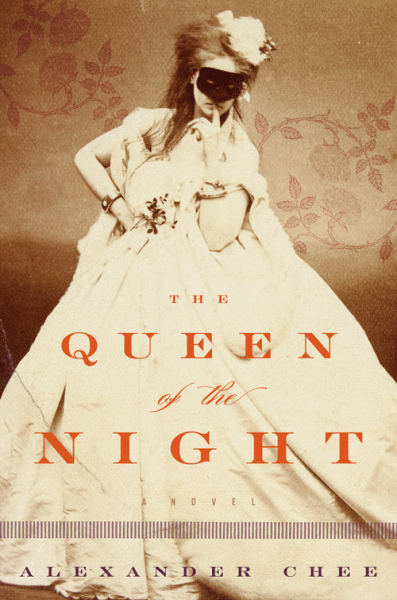 Alexander Chee’s long-awaited second novel, The Queen of the Night, is luscious and captivating and please read it. Perhaps I am biased, and I will tell you why in a minute, but this is the rare book I considered not finishing before publishing this review (fear not traditionalists, I did read the whole thing). Chee’s writing is lyrical and beautiful and poetic, without feeling obtuse. It alone makes this a worthwhile read. The central character and narrator, who has named herself Lilliet Berne, is ever compelling and as the layers of her character and life story unveiled, increasingly so.
Alexander Chee’s long-awaited second novel, The Queen of the Night, is luscious and captivating and please read it. Perhaps I am biased, and I will tell you why in a minute, but this is the rare book I considered not finishing before publishing this review (fear not traditionalists, I did read the whole thing). Chee’s writing is lyrical and beautiful and poetic, without feeling obtuse. It alone makes this a worthwhile read. The central character and narrator, who has named herself Lilliet Berne, is ever compelling and as the layers of her character and life story unveiled, increasingly so.
Basic story. Set in the nineteenth century France, the novel follows Lilliet, an opera singer with a rare voice made for singing the most devastating roles. When she is offered the chance to premiere a role — every opera singer’s path to immortality — she discovers that it is based on hidden parts of her past, long kept secret. She takes readers on a journey through her transformations. Orphan, courtesan, mute, servant, lover, rival… Circling Lilliet is a cast of historical characters including Napoleon II and Verdi and intricate details delicately laid before us by Chee. At its center, love and loss.
I cannot understate how enthralling Chee’s narrative is, as you almost melt into his words and this story, so compellingly crafted and executed. I knew in the middle that this was a book worth reading, even if the ending disappointed, it wouldn’t matter. So I almost wrote this review then. Honestly, I’m not sure how different it would have been. I’m equally enamored having taken the whirlwind journey towards the end.
I mentioned some bias. Let me explain. Part of that has to do with music. I was raised by a classical musician, going to operas, ballets, concerts, and I have a soft spot for a books that enmesh themselves in the emotions of music and all its complexity. I also have a soft spot for Chee’s kind of writing, and he is so good at it. He writes about Chopin’s Nocturne in C Minor, op. 48, no. 1, and it’s something that in some books would be so little, yet here is so striking:
If Chopin’s Nocturne in F Minor, op. 55, no. 1 is like looking for a love lost in the darkness, this is the descent into love, in all its richness, mortifications and subsequent glories. It began mournfully, and then becomes tender, then passionate, then seems to rage in a movement from despair into redemption, then passion again, and at last, a plaintive, even affectionate acceptance that this will die and leave us. In Pauline’s hands that night, it was a storm of arpeggios, a passion made more beautiful by the way it aspires to immortality despite the knowledge of its own death approaching — a love that knows it can be lost and still loves hopelessly as long as it can.
I don’t think you have to be familiar with these particular pieces to get what he’s saying, though perhaps more devastating if you do. Chee, too, got his love of music and La Traviata in particular form his parents.
Chee’s luscious language is a delight to follow here and as it outlines the novel’s intricately described historical set pieces, from rural America to the bright lights of Paris, and also its dark back alleys. Lilliet is a wonderful narrator and her jumps between past and present feel fluid, not forced, a journey through her brain that is altogether human in its flaws and triumphs.








